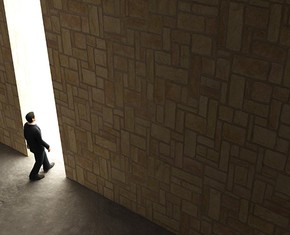The views expressed in our content reflect individual perspectives and do not represent the authoritative views of the Baha'i Faith.
In the Baha’i Faith—which has no clergy—democratically elected councils called Spiritual Assemblies form the bedrock of the Baha’i administrative order.
I have served on a Local Spiritual Assembly for many decades, and from experience I can say that as long as the members maintain open hearts and minds, truth enters the consultation when you least expect it.
Many times we were sure of one decision when a pure soul offered heartfelt feelings and turned the discussion—and our conclusions—completely around and into something much better. Baha’i consultation is not just the loving sharing of one’s thoughts and feelings on a topic, but also the absorption of others thoughts and feelings into a unified whole.
Historically speaking, how and when did these councils arise?
They came directly from Baha’u’llah, the prophet and founder of the Baha’i Faith, who specifically ordained that Assemblies should be elected, then meet and consult together in unity before making any decisions. After many local and national Spiritual Assemblies were elected around the world, the first election and establishment of the Baha’i global governing council, the Universal House of Justice, took place in 1963.
Far from being instruments of power or dogma, Shoghi Effendi, the Guardian of the Baha’i Faith, made clear that the Faith’s elected representatives should frankly and lovingly consult with one another before making their decisions:
Let us also bear in mind that the keynote of the Cause of God is not dictatorial authority but humble fellowship, not arbitrary power, but the spirit of frank and loving consultation. Nothing short of the spirit of a true Baha’i can hope to reconcile the principles of mercy and justice, of freedom and submission, of the sanctity of the right of the individual and of self-surrender, of vigilance, discretion and prudence on the one hand, and fellowship, candor, and courage on the other. – Baha’i Administration, pp. 63-64.
What might “the spirit of a true Baha’i” mean in this context? For Baha’is on elected councils at all levels of Baha’ administration, whether local, regional, national or universal, it is the following:
Their function is not to dictate, but to consult, and consult not only among themselves, but as much as possible with the friends whom they represent. They must regard themselves in no other light but that of chosen instruments for a more efficient and dignified presentation of the Cause of God. …
They should approach their task with extreme humility, and endeavor, by their open-mindedness, their high sense of justice and duty, their candor, their modesty, their entire devotion to the welfare and interests of the friends, the Cause, and humanity, to win, not only the confidence and the genuine support and respect of those whom they serve, but also their esteem and real affection.
They must, at all times, avoid the spirit of exclusiveness, the atmosphere of secrecy, free themselves from a domineering attitude, and banish all forms of prejudice and passion from their deliberations. – Ibid., p. 64.
Elected members form the foundation of Baha’i institutions, and the Baha’i teachings encourage their consultation to be “dispassionate, anxious and cordial,” conducted in a prayerful attitude, “with earnestness and conviction and courage.” While they strive for consensus and unanimity, the Assemblies “abide by the voice of the majority.” – Ibid.
The process of Baha’i elections and consultation—which include no campaigning, no electioneering and no nominations—when contrasted with governing chambers of all kinds throughout the world could not be more dramatically different. In many governments, despotic, tyrannical, greedy, or self-aggrandizing individuals try to hold onto power at all costs. In the Baha’i administrative order, no single individual has any power—only democratically-elected bodies make decisions, which come about in an atmosphere of service, prayer and unity.
These principles, which constitute the Baha’i framework for building harmonious relationships between people of every race, nationality, creed and belief, are fundamental to seeing true civilization spread and flourish.
You May Also Like
Comments

















(Shoghi Effendi, The Compilation of Compilations vol II, p. 149)